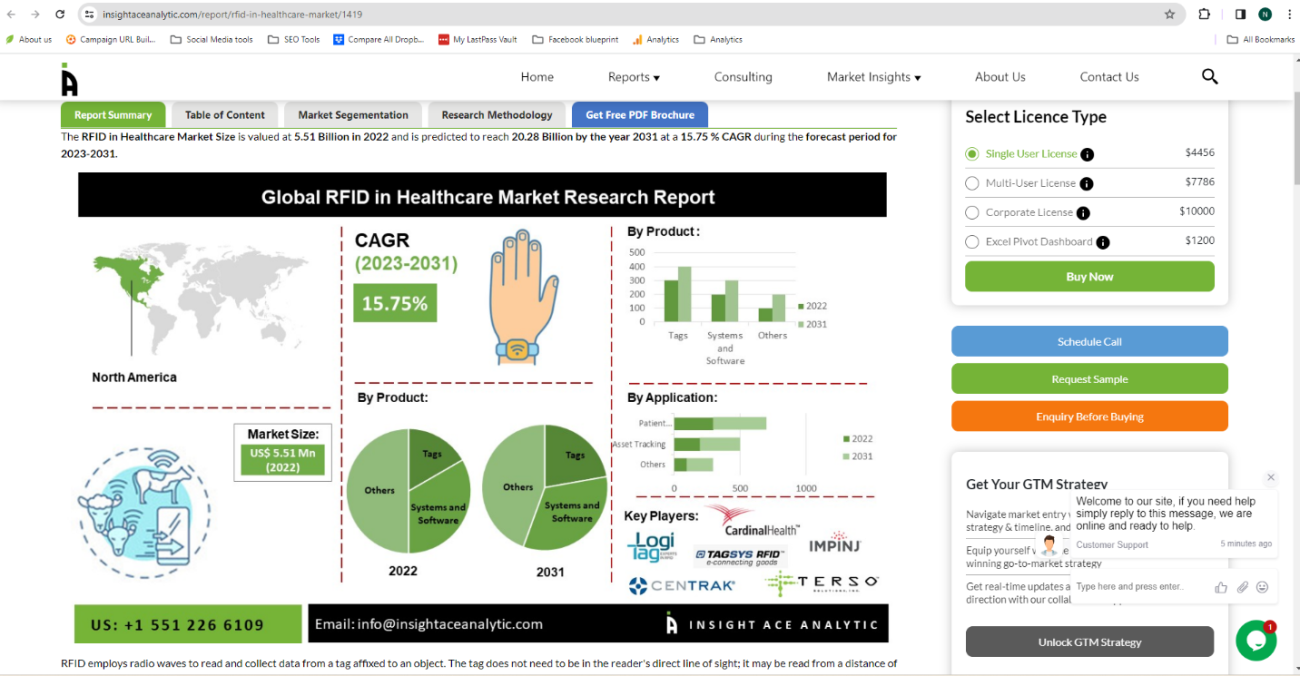
RFID (Radio-Frequency Identification) technology utilizes radio waves to read and collect data from tags attached to objects, allowing for non-line-of-sight reading from a distance. It finds applications in patient safety, supply chain management, and quality assurance in healthcare settings. The technology is instrumental in managing implants, preventing medical errors, and optimizing asset usage in hospitals and clinics.
The growth of RFID in healthcare is driven by the increasing adoption of automated processes in hospitals and pharmacies. The technology is particularly in demand for patient tracking, pharmaceutical tracking, and overall asset tracking. The pharmaceutical tracking segment, in particular, is witnessing rapid growth due to its role in combating counterfeit medications and improving inventory control.
The North American market holds a significant share in RFID adoption in healthcare, driven by factors such as increased hospitals, stringent patient safety regulations, and the need for medical device tracking. The Asia Pacific region is expected to experience rapid growth, fueled by a growing pharmaceutical sector, increasing healthcare costs, and improved healthcare infrastructure.
Major players in the RFID in healthcare market include Avery Dennison Corporation, Logi-Tag Systems, Cardinal Health, GAO RFID, Inc., IBM Corp., Zebra Technologies Corporation, and others. The market is segmented based on products (systems & software, tags) and applications (asset tracking, patient tracking, pharmaceutical tracking, blood tracking, and others).
The RFID in Healthcare market is valued at USD 5.51 Billion in 2022, predicted to reach USD 20.28 Billion by 2031, with a CAGR of 15.75%. The market is segmented by product (systems & software, tags) and application (asset tracking, patient tracking, pharmaceutical tracking) across regions (North America, Europe, Asia Pacific, Latin America, Middle East & Africa).
